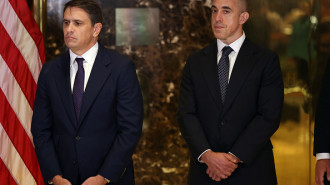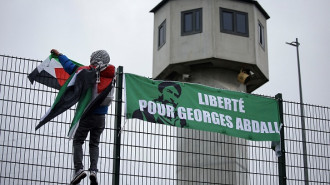EU and Gulf leaders meet for first summit amid Israel's wars on Gaza and Lebanon
The leaders of the European Union and six Gulf nations are meeting in an inaugural summit on Wednesday against a backdrop of Israel's wars on Gaza and Lebanon and struggles to find a unified position on the war in Ukraine.
Its aim in meeting the six wealthy Arab states in the Gulf Cooperation Council is to make the relationship more strategic, recognising those countries' influence, particularly in the wars on Ukraine and the Middle East.
"The Gulf region is at the crossroads between Asia, Europe and Africa. It plays a very important role in many of the crisis of today," a senior EU official said.
An EU partnership with Bahrain, Kuwait, Oman, Qatar, Saudi Arabia and the United Arab Emirates would cover trade and investment, renewable energy, regional security and citizen issues such as visas.
The summit is expected to last just a few hours and encompass everything from visas and trade to Israel's wars, but it is unlikely to yield more than general commitments to improve cooperation.
The summit is also part of an EU diplomatic push for far-flung friends, as the EU enlists international support to isolate Russia.
"Our message is clear: we are ready to act more and more together in facing common challenges," said EU foreign affairs chief Josep Borrell on the eve of the meeting.
The 27-nation EU has long had relations with the six-nation Gulf Cooperation Council, which includes Qatar, Bahrain, the United Arab Emirates, Saudi Arabia, Oman, and Kuwait.
The nations of the European Union already find it challenging to find full alignment on Israel's wars, and it will be difficult to find a strong common statement with GCC leaders, officials familiar with the meeting said.
Though Brussels wants the GCC partners to agree on strong language on Russia's military assault on Ukraine, it is not expecting them to fully adopt its position in blaming Moscow.
The two blocs are arguably closer in the Middle East, where the EU calls for a ceasefire in Gaza and broader de-escalation.
Talks on an EU-GCC free trade agreement, which began 35 years ago, have been suspended since 2008, with disagreement over the openness of public tenders and oil products.
However, EU officials said there were other trade and investment cooperation avenues.
The UAE has also quietly urged the EU to start talks on a separate trade pact with it, Reuters reported in March.
One request from the Gulf side is visa liberalisation. Currently, UAE citizens do not require EU visas for short stays, while those of other Gulf nations need to secure a five-year visa.
EU members also disagree regarding relations with Russia and Ukraine, with nations like Hungary and Slovakia holding vastly different views on Moscow's actions than many of the other EU states.
At the same time, several GCC nations have much better contact with Moscow than EU members.







 Follow the Middle East's top stories in English at The New Arab on Google News
Follow the Middle East's top stories in English at The New Arab on Google News


![Aid Gaza [Getty]](/sites/default/files/styles/image_330x185/public/2010004231.jpeg?h=cb957c44&itok=NpHeiZFt)